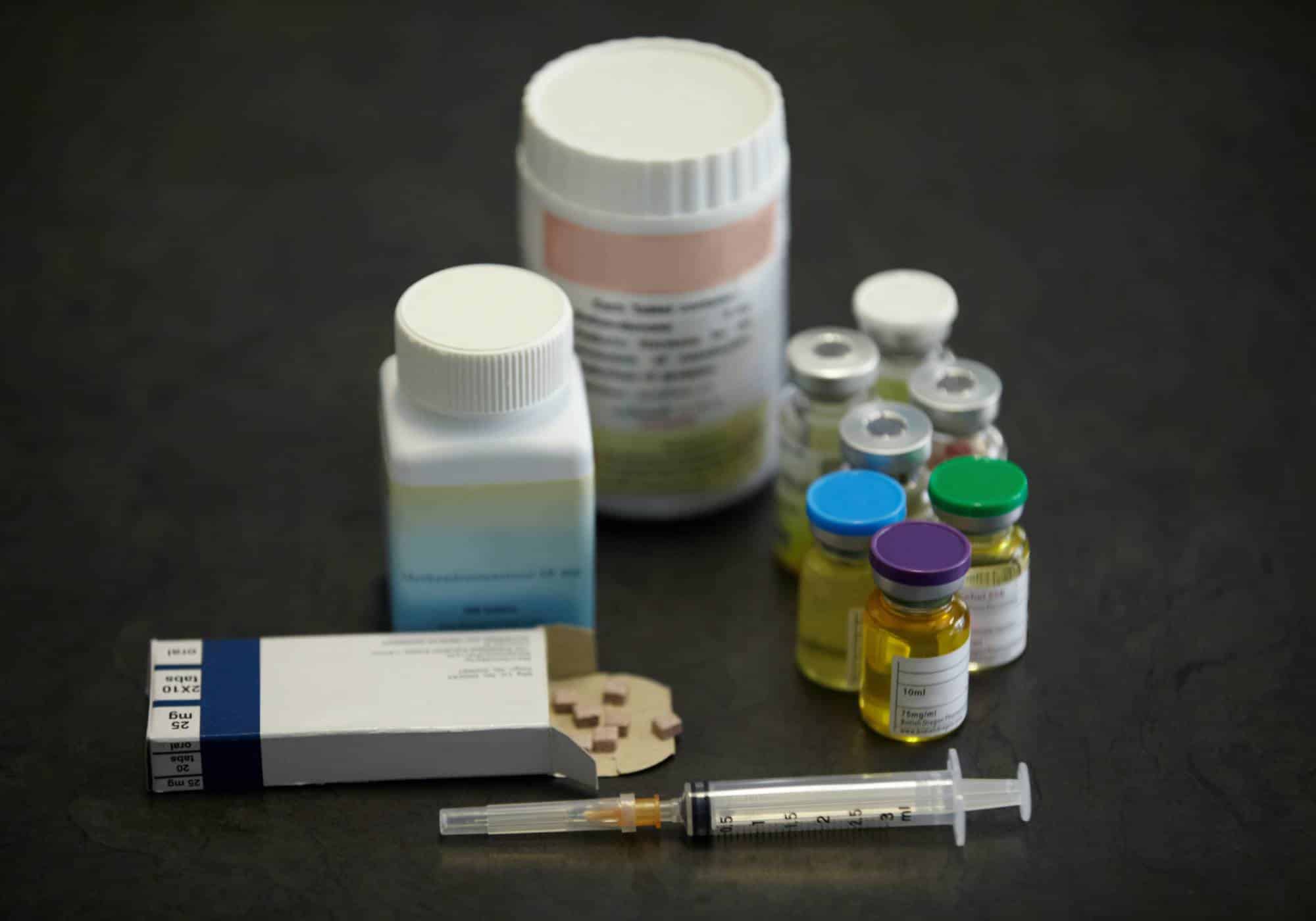Ambien has proven to be an effective solution for individuals grappling with insomnia, offering relief when used responsibly under the guidance of a healthcare professional. However, the misuse of Ambien can lead to dependency, making it challenging to break free from the cycle of ambien addiction. The severity of ambien withdrawal symptoms is a significant barrier that individuals face on the path to recovery.
What is Ambien?
Ambien, known generically as zolpidem, is a sedative-hypnotic medication primarily prescribed for the treatment of insomnia. Adults are generally advised a dosage of 10 mg, while older adults or individuals with specific health conditions may be prescribed a lower dose of 5 mg. It’s important to note that Ambien is not recommended for use by children and adolescents.
Intended for short-term management of sleep disturbances, Ambien’s prescribing guidelines suggest a maximum usage period of no more than 35 days.
What is Ambien Withdrawal?
Ambien, classified as a “z-drug,” is generally viewed by healthcare professionals as less prone to habit formation compared to other sedatives, such as benzodiazepines. However, this perception may lead some to incorrectly assume that Ambien carries no risk of addiction, potentially resulting in its misuse or abuse.
Even those who follow their doctor’s Ambien prescription can develop tolerance to the medication within just two weeks. Tolerance happens when the body becomes accustomed to Ambien’s effects, necessitating higher doses to achieve the initial response. Dependence on Ambien develops when the body requires the drug to function normally. Abrupt cessation or dosage reduction can trigger withdrawal symptoms, particularly if done suddenly without medical guidance—known as going “cold turkey.” Ambien withdrawal can present severe symptoms, some of which may pose serious health risks.
Opting for a medically-assisted detox is crucial to mitigate the risks associated with Ambien withdrawal. Such an approach not only safeguards against potentially life-threatening complications but also ensures a more manageable withdrawal experience.
How Addictive is Ambien?
Ambien is classified as a Schedule IV Controlled Substance, indicating it has a lower risk of abuse and dependence compared to more heavily regulated drugs. This classification places its potential for abuse and dependence on a level akin to benzodiazepines, such as Xanax. Despite this relatively low risk, there have been cases suggesting Ambien could be misused for its calming effects, particularly at high doses or by those without a history of substance misuse.
Ambien’s misuse can lead to physical and/or psychological reliance, especially among users who rely on it for sleep or those who escalate their dose to combat insomnia. Tolerance to Ambien, where its efficacy diminishes, can develop after nightly use for over two weeks. The likelihood of developing a significant dependence on Ambien grows with prolonged regular use or misuse at elevated doses. Those dependent on Ambien might face withdrawal symptoms upon discontinuation, highlighting the importance of cautious and supervised medication management.
Symptoms of Ambien Withdrawal
Withdrawal from Ambien can manifest through various symptoms, commonly including:
- Daytime fatigue
- Coordination difficulties
- Memory lapses
- Headaches
- Lightheadedness
- Incidences of falling
- Nausea and vomiting
Less common but notable withdrawal symptoms can involve:
- Breathing challenges
- Spinning sensations (vertigo)
- Sleeplessness
- Widespread body discomfort
- Unusual dreaming patterns
- Elevated temperature
- Symptoms resembling those of the flu
Duration of Ambien Withdrawal
The withdrawal timeline from Ambien can significantly vary, with symptoms potentially lasting from a few days to several weeks, depending on the user’s history with the drug.
Individuals who have taken higher doses of Ambien for extended periods typically face more severe withdrawal symptoms and a prolonged recovery process. For instance, while the recommended daily dose of Ambien is around 5 mg, those with an addiction may consume substantially more, ranging from 10-20 mg daily, with extreme cases reported up to 160 mg daily.
Withdrawal duration can also be extended for users of Ambien CR (controlled release), designed for longer-lasting effects to maintain sleep throughout the night. Consequently, Ambien CR stays in the system longer, resulting in a more extended withdrawal phase.
Ambien’s chemical structure shares similarities with benzodiazepines, leading to comparable withdrawal experiences between these drugs. Typically, the acute phase of withdrawal peaks around the third to fifth day, with symptoms generally subsiding after two weeks. Beyond this acute phase, individuals may experience post-acute withdrawal symptoms (PAWS), which can persist for 18-24 months. Although these symptoms gradually lessen over time, common PAWS include anxiety, concentration issues, sleep disturbances, fluctuating appetite, mood swings, irritability, and restlessness.
Ambien Withdrawal Timeline
- Initial 48 Hours: Ambien’s half-life, approximately 2 hours, is relatively short compared to other sedatives, meaning it leaves the body more quickly. Withdrawal symptoms typically start emerging within 48 hours after the last dose. During the initial 1-2 days, individuals might experience gradually intensifying but still mild symptoms.
- Days 3-5: Around two days post-last dose, withdrawal symptoms intensify, reaching their peak between the third and fifth days. During this period, individuals often undergo severe symptoms such as confusion, memory issues, mood fluctuations, and significant sleep disturbances. Symptoms may include shakiness, nausea, and potential panic attacks, alongside pronounced rebound insomnia.
- Weeks 1-2: Following the peak of withdrawal symptoms, individuals start to return to a sense of normalcy. Over the second week, symptoms gradually diminish, and sleep patterns begin to improve, allowing former users to achieve rest without the need for Ambien.
Treatment for Ambien Withdrawal
Inpatient and outpatient rehab centers frequently provide medically supervised detoxification as a component of their treatment offerings. Yet, overcoming Ambien addiction extends beyond navigating withdrawal. A comprehensive approach that integrates gradual dose reduction with therapeutic interventions, such as cognitive-behavioral therapy, significantly enhances recovery prospects.
The combination of medical detox and therapeutic support is crucial for achieving lasting freedom from Ambien dependency. If you or a loved one is battling an addiction to Ambien and concerns about relapse persist, support is accessible. Contact Hope Harbor Wellness today for information on available treatment pathways.
Ambien Withdrawal Treatment at Hope Harbor Wellness
Located in the serene suburbs of Atlanta, Hope Harbor Wellness is your ally in the fight against Ambien addiction in Atlanta, GA. Our Ambien drug rehab, dedicated to holistic recovery, is ideally situated to offer you the support you need.
Our compassionate Ambien outpatient program collaborates with top-tier medical ambien detox facilities, ensuring a safe and effective detox process. Once free from addictive substances, you can seamlessly transition into one of our specialized outpatient treatment programs at Hope Harbor Wellness, designed to address substance use disorders:
- Outpatient Rehab: A flexible program tailored to fit into your daily life.
- PHP (Partial Hospitalization Program): Offers a structured yet non-residential approach to treatment.
- IOP (Intensive Outpatient Program): Provides more intensive care while allowing you to maintain daily responsibilities.
- Dual Diagnosis Treatment Program: Caters to those with co-occurring mental health disorders.
Our Ambien treatment programs incorporate a variety of interventions:
- MAT (Medication-Assisted Treatment): Utilizes medications to ease withdrawal symptoms and cravings.
- Psychotherapy: Addresses underlying psychological aspects of addiction.
- Group Therapy: Offers peer support and shared learning experiences.
- Individual Counseling: Provides personalized guidance and support.
- Family Therapy: Helps heal and strengthen family relationships.
- Holistic Therapies: Focuses on overall well-being, including physical, emotional, and spiritual health.
- Aftercare: Ensures ongoing support post-treatment.
Embark on your journey from addiction to recovery with Hope Harbor Wellness. Trust in our dedicated team to guide you every step of the way. For more information or to start your journey, call our admissions team at 678-672-6731.












